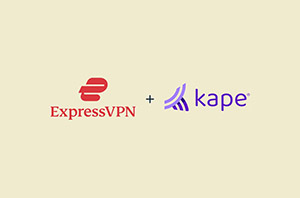ExpressVPN Acquired for Nearly $1 Billion
Sep 15, 2021 @ 12:00 pm
/
/
 Who knew dime-a-dozen VPN companies were so valuable? Not me. But I guess they’re worth a pile of gold, considering that Kape Technologies is paying $936 million for ExpressVPN. The service, founded in 2009, has over 3 million companies and 290 employees. While ExpressVPN is spinning this as a way to “strengthen privacy,” others are more skeptical.
Who knew dime-a-dozen VPN companies were so valuable? Not me. But I guess they’re worth a pile of gold, considering that Kape Technologies is paying $936 million for ExpressVPN. The service, founded in 2009, has over 3 million companies and 290 employees. While ExpressVPN is spinning this as a way to “strengthen privacy,” others are more skeptical.
Kape was previously known as “Crossrider” and has a dodgy past, forcing ads into people’s browsers. More specifically, MalwareBytes labeled them as malware peddlers.
While they say they’ve reformed, I can’t imagine this fills ExpressVPN’s clientele with a lot of confidence.
Are you an ExpressVPN customer? What do you think about this?

Raindog308 is a longtime LowEndTalk community administrator, technical writer, and self-described techno polymath. With deep roots in the *nix world, he has a passion for systems both modern and vintage, ranging from Unix, Perl, Python, and Golang to shell scripting and mainframe-era operating systems like MVS. He’s equally comfortable with relational database systems, having spent years working with Oracle, PostgreSQL, and MySQL.
As an avid user of LowEndBox providers, Raindog runs an empire of LEBs, from tiny boxes for VPNs, to mid-sized instances for application hosting, and heavyweight servers for data storage and complex databases. He brings both technical rigor and real-world experience to every piece he writes.
Beyond the command line, Raindog is a lover of German Shepherds, high-quality knives, target shooting, theology, tabletop RPGs, and hiking in deep, quiet forests.
His goal with every article is to help users, from beginners to seasoned sysadmins, get more value, performance, and enjoyment out of their infrastructure.
You can find him daily in the forums at LowEndTalk under the handle @raindog308.
 Who knew dime-a-dozen VPN companies were so valuable? Not me. But I guess they’re worth a pile of gold, considering that Kape Technologies is paying $936 million for ExpressVPN. The service, founded in 2009, has over 3 million companies and 290 employees. While ExpressVPN is spinning this as a way to “strengthen privacy,” others are more skeptical.
Who knew dime-a-dozen VPN companies were so valuable? Not me. But I guess they’re worth a pile of gold, considering that Kape Technologies is paying $936 million for ExpressVPN. The service, founded in 2009, has over 3 million companies and 290 employees. While ExpressVPN is spinning this as a way to “strengthen privacy,” others are more skeptical.






















Great news: We don’t have to figure out whether to be concerned about the past actions of Kape Technologies. Their activities right now are concerning enough.
The answer is clear to anyone who’s been paying attention: Don’t trust Kape, and if they buy up a service you’re using, stop paying bills and start packing bags.
So far, Kape owns Private Internet Access, ExpressVPN, Cyberghost, and Zenmate. They also have a few antivirus-product holdings. They have also bought a company called Webselenese.
Webselenese hires freelance writers to write reviews of VPN providers. The reviews are posted on wizcase.com and vpnmentor.com. Guess who owns those sites? I’ll give you a hint: It has two words and rhymes with “Ape Chronologies.”
Of course, they claim that the reviews are unbiased, impartial, and so on. But I was accepted as one such writer and saw it for myself. They hire people who barely know what a VPN is and provide them with “intro to the general concept of a VPN” material to read so they can get caught up.
Nothing really wrong with that. The whole idea is that a good content writer can conduct research and grasp a new concept quickly enough to relay useful information about it to a certain audience in a competent manner.
What’s wrong is the part where the writers are fed information to include in the articles. The assignments aren’t just “Research these VPNs and provide a review focusing on these points.” It’s more like “Write this review (or extremely specific tutorial) about these VPNs, put this part in verbatim, write this part in your own words, and here are all the concrete details you’re going to include.”
So anything they publish about speed or stability tests, having demoed the software, or really any claims of first-hand knowledge of a VPN service? It’s nothing but hearsay — supposedly the results of research conducted by a Webselenese team, but they present their writers as experts, not parrots.
This conflict of interest alone is enough for me to go out of my way to avoid Kape holdings.
The chocolate frosting on the doughnut hole is that Kape’s founder is known to have military career origins in Unit 8200, the SIGINT unit of the IDF’s Israeli Intelligence Corps. Alumni of this unit routinely go on to found information security companies that you’ve heard of if you’ve heard of anything in security. In my book, the involvement of a Unit 8200 alumnus places a company somewhere on a spectrum between “liable to prioritize Israeli interests over those of their customers” and “active front for Mossad intelligence operations.”
So far, people are aware of two VPN review websites owned by Kape, but there could easily be others undisclosed. And Kape isn’t the only company doing this. They’re probably not even the most shady about it. At least they list their holdings on their website. There’s no mention of wizcase and vpnmentor, but I’m sure there’s a perfectly weaselly explanation of why it’s not technically dishonest to withhold that information.
What other companies own distressing numbers of ostensibly independent VPN services?
https://vpnpro.com/blog/hidden-vpn-owners-unveiled-97-vpns-23-companies/
How can you tell when a VPN review might have been written by a Webselenese contractor?
https://old.reddit.com/r/VPNTorrents/comments/r160ll/spotting_fake_reviews_from_kape_technologies/
Thanks!